Even with a fence, a neighbour’s cat can still sneak into your garden. While they can just lounge and provide you with company, they may instead choose to chase songbirds and use your garden as a litter box. Yuck! Here’s how to stop cats from pooping in the garden.
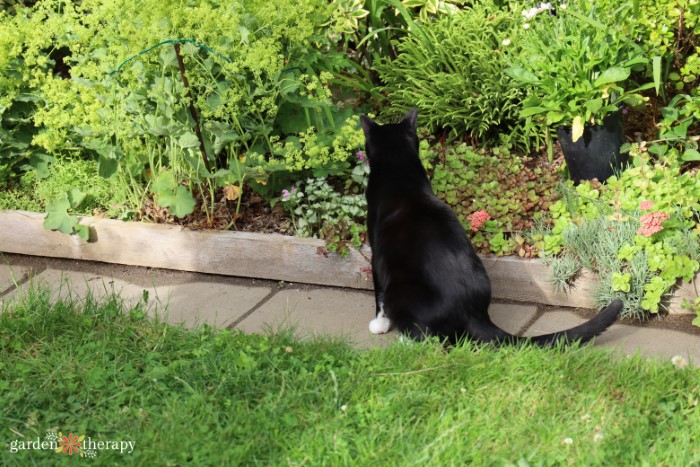
Personally, my cat Magic is one of my best garden pals. He keeps the rats from munching on my veggies and will lounge in the sun or soil while I’m busy puttering in the yard.
While Magic knows to use the litter box inside the house rather than my precious garden beds, I know everyone isn’t always so lucky. Neighbourhood cats can be a nuisance at times!
In this post, we’ll talk about…
- How to Stop Cats From Pooping in the Garden
- Add Ground Cover
- Top Off With Mulch
- Add More Plants
- Frequently Asked Questions
- More Posts About Garden Pests
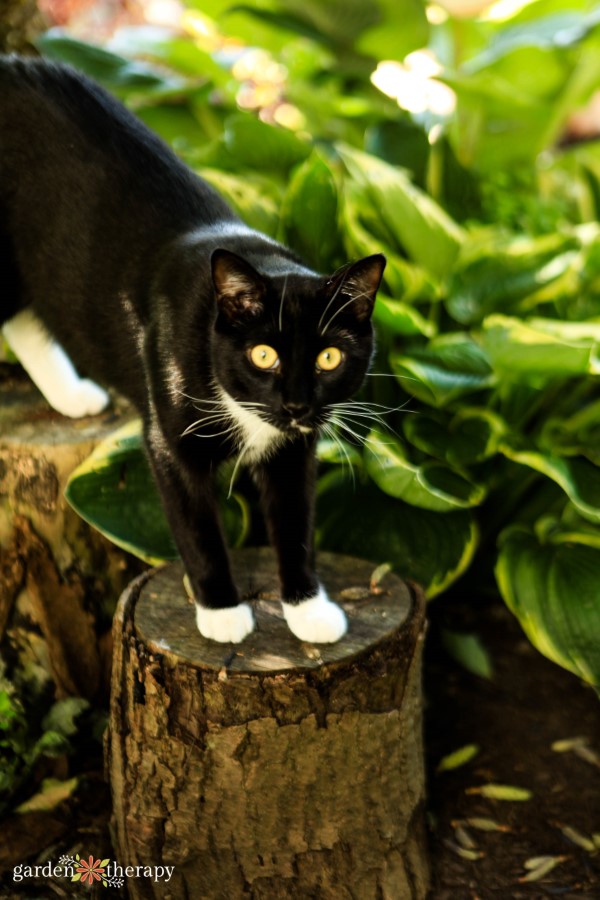
How to Stop Cats From Pooping in the Garden
Cats often use the garden as a bathroom because it looks like a giant litterbox! Any parents who have had a sandbox in their garden will quickly know what I mean here.
The goal is to make your garden look more like a garden! This means leaving as little exposed (ready-to-dig) soil as possible. Here are a few ideas for how to do just that.
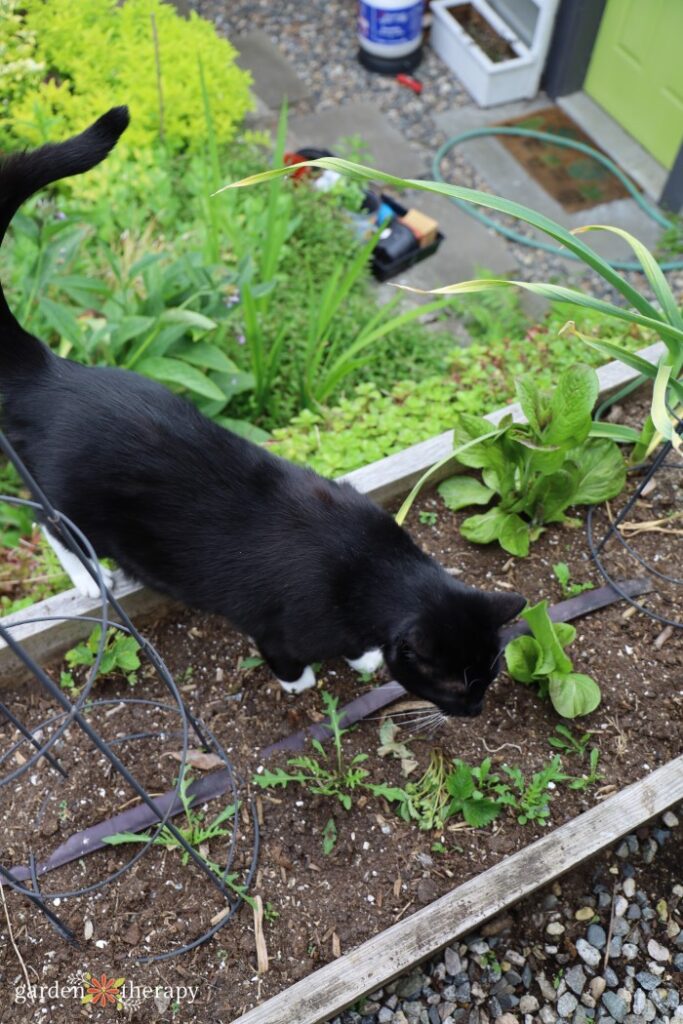
Add Ground Cover
Ground cover plants are those that grow quite low to the ground, covering bare soil. These are great to include if you want to cover a large area to prevent cats from pooping in your garden.
Popular ground cover plants include:
- Heather
- Creeping thyme
- Creeping juniper
- St. John’s wort
- Cotoneaster
- Salal
- Wintergreen
- Ajuga
- Sedum
- Oregano
- Lamb’s ear
- Sweet alyssum
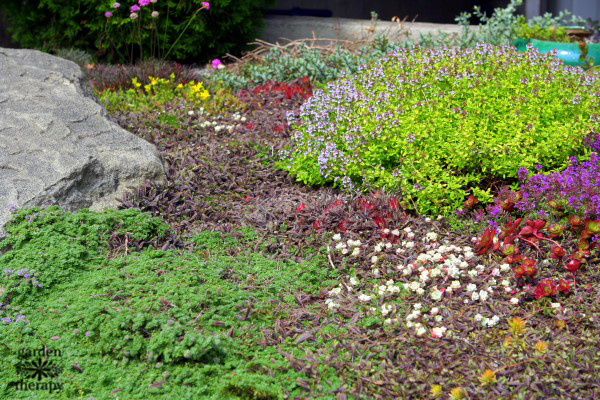
Top Off With Mulch
Another excellent way to stop the neighbourhood cat from pooping in your garden is to add a thick layer of mulch over exposed soil.
Cats don’t like to walk on sharp or pokey materials, so you want mulch with lots of large wood chips or sticks. Add this layer, and the cats should stay completely clear of your garden.
Anything that covers loose soil will work. This could also include chicken wire, egg shells, or spiky mats.
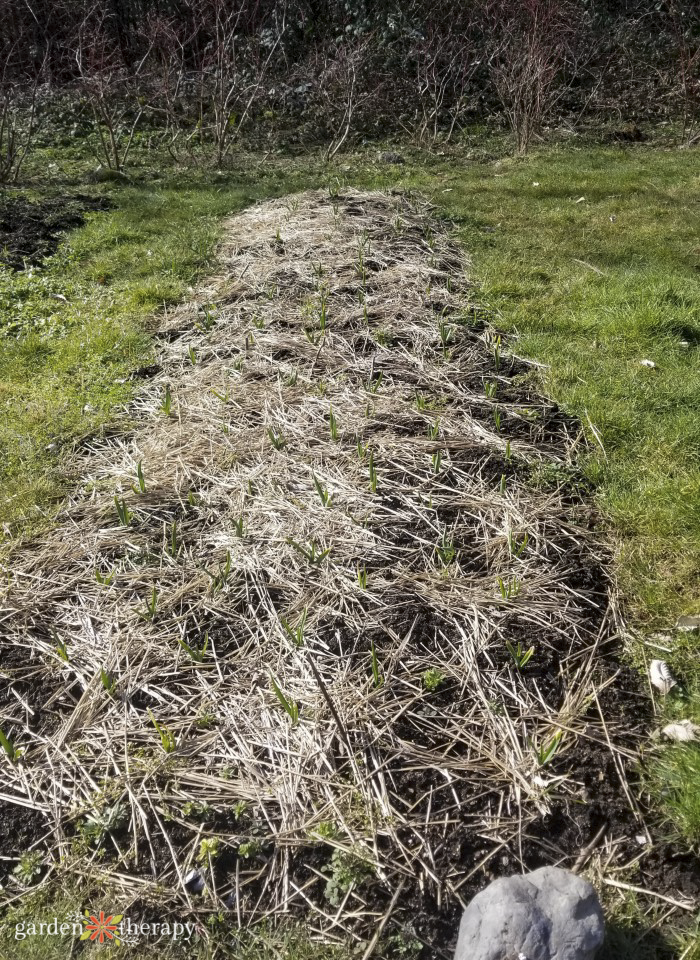
Add More Plants
If you have lots of bare soil, see if you can add in some plants to take up the space. Fill large sections with low-maintenance shrubs. Otherwise, fill in spaces with the idea that the more greenery, the better!
You can even go for a pokey plant that keeps animals away, such as blackberry, holly, rose, or barberry.
And just like companion planting, you can add some plants cats don’t like including marigolds, lavender, lemon thyme, nasturtium, Coleus canina, and more.
Cats really don’t like rue, but this is a toxic plant to cats and should be avoided altogether.
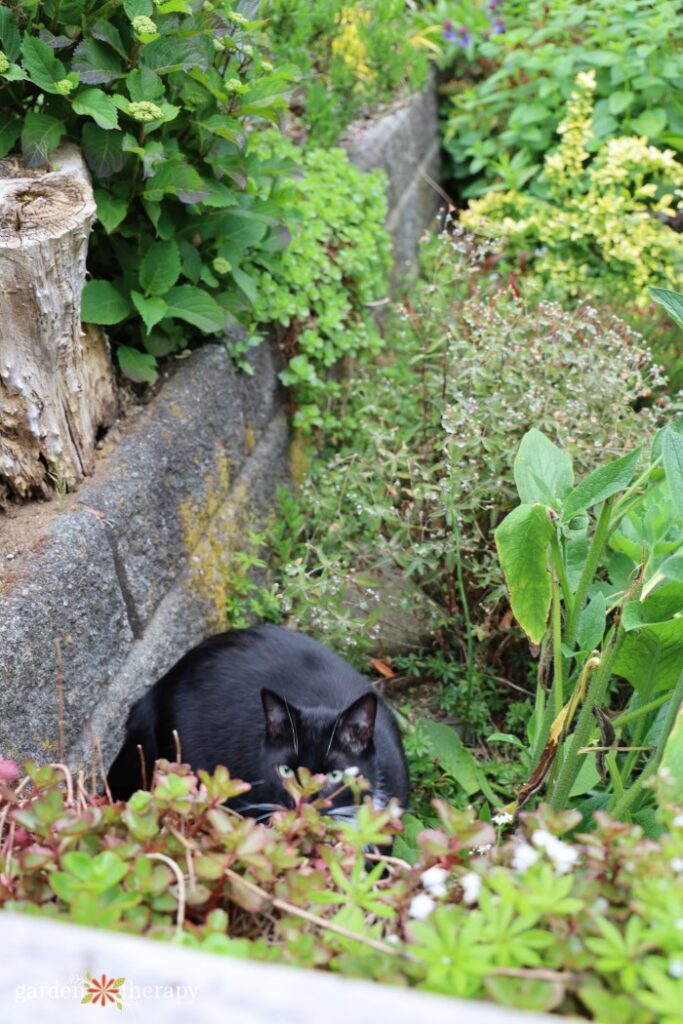
Frequently Asked Questions
Due to the extreme scent of vinegar and a cat’s strong sense of smell, vinegar can help to repel cats. White vinegar works best, as opposed to sweeter vinegar like apple cider vinegar.
To make a spray, dilute the vinegar with water (1:1 ratio). Be mindful that vinegar can kill plants, so careful where you spray it!
Cat poop can have parasites in it, such as tapeworms, roundworms, and hookworms, as well as bacteria, such as E. coli or Salmonella. It can be potentially dangerous in the vegetable garden. It’s one of the reasons why we shouldn’t flush their feces down the toilet, either.
However, if you wear gloves, wash your hands well, and give any vegetables a good rinse and scrub with a veggie wash, the chances of infection are greatly reduced.
Cats really dislike citrus scents. Adding citrus-smelling plants, smatterings of lemon or orange peels, or drops of essential oil may help deter cats.
Some people have also reported luck with coffee grounds, citronella, eucalyptus, peppermint, rosemary, and pine.
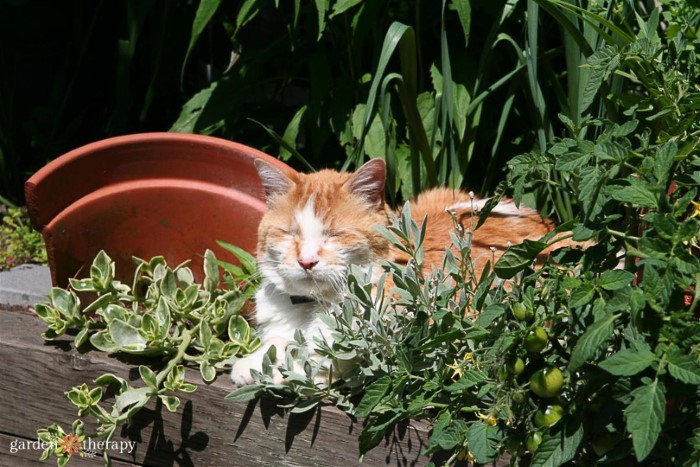

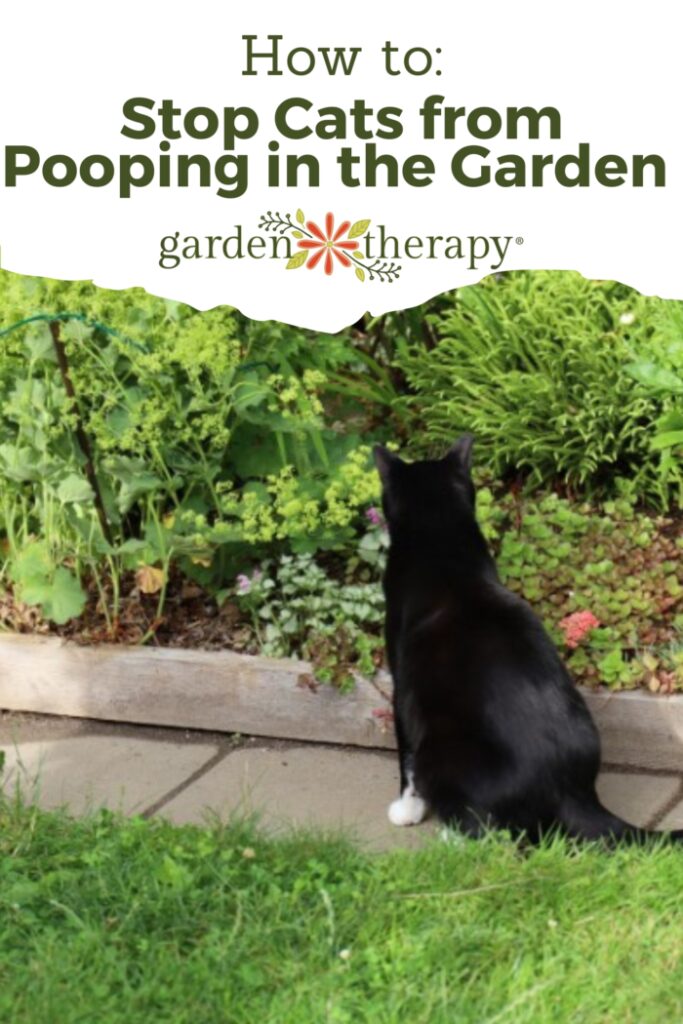
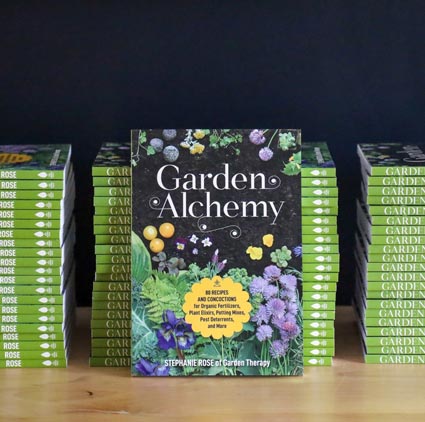


peppermint essential oil is toxic to cats…???